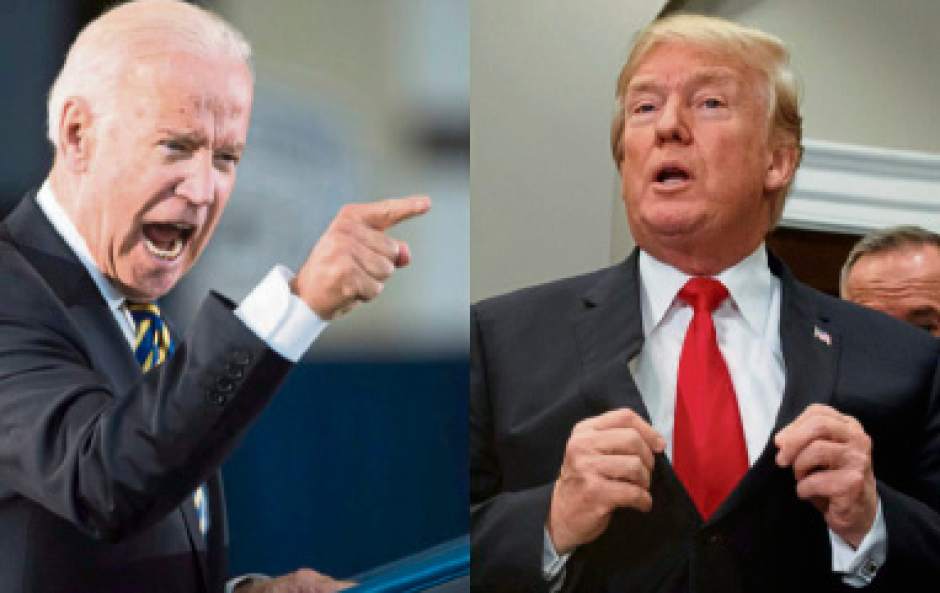Trump-Biden beef pales in comparison to others in U.S. political history
The war of words between President Trump and former Vice President Joe Biden escalated quickly.
Two days after Biden said during a speech in Miami that he would have "beat the hell out of" Trump in high school, the president tweeted Thursday morning that Biden "would go down fast and hard, crying all the way" if they ever fought.
Crazy Joe Biden is trying to act like a tough guy. Actually, he is weak, both mentally and physically, and yet he threatens me, for the second time, with physical assault. He doesn't know me, but he would go down fast and hard, crying all the way. Don't threaten people Joe!
— Donald J. Trump (@realDonaldTrump) March 22, 2018
The Trump-Biden beef has a long way to go before ranking among the worst in American political history.
Any discussion of political beefs starts with Aaron Burr and Alexander Hamilton. A feud that simmered between the men for years ended with Burr, then the sitting vice president, fatally shooting the former Treasury Secretary Hamilton in a duel in 1804 .
Pennsylvania Republican Galusha Grow, an abolitionist, was involved in what has been described as the most infamous brawl in the history of the U.S. House of Representatives. During a debate over the Kansas Territory's pro-slavery constitution, Grow and South Carolina Democrat Laurence Keitt "exchanged insults, then blows," according to the Office of the Historian of the House. More than 30 colleagues jumped in. The fracas reportedly ended when Wisconsin Republican John F. Potter ripped a toupee off the head of Mississippi Democrat William Barksdale and declared, "Horray, boys! I've got his scalp!"
Two years after that brawl, Potter earned the nickname "Bowie Knife" when Virginia Democrat Roger Pryor challenged Potter to a duel and he accepted "with the stipulation the weapons should be bowie knives and the encounter should take place in a closed room and the fight to go on till one or the other of us fell," Potter recounted nearly four decades later. Police arrested both men and held them until tempers cooled.
At least two brawls between lawmakers involved canes.
In 1798 when Congress met in Philadelphia, Connecticut Federalist Roger Griswold walloped Vermont Democratic-Republican Matthew Lyon with a cane and Lyon defended himself with a pair of fire tongs. Two weeks earlier, Lyon had spit tobacco juice in Griswold's face.
In 1856, Democratic U.S. Rep. Preston Brooks of South Carolina attacked Republican U.S. Sen. Charles Sumner of Massachusetts with a cane and beat him into unconsciousness , according to the Senate Historical Office.
"The nation, suffering from the breakdown of reasoned discourse that this event symbolized, tumbled onward toward the catastrophe of civil war," the Senate Historical Office wrote.
Tom Fontaine is a Tribune-Review assistant news editor.

